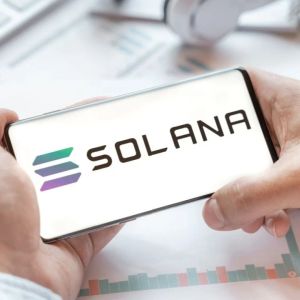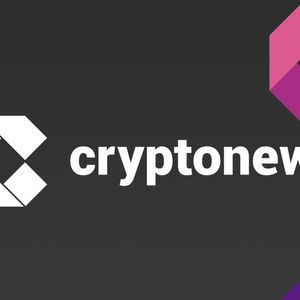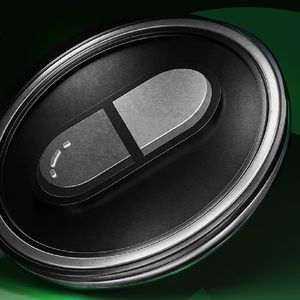Six months into the enforcement of the European Union’s Markets in Crypto-Assets Regulation (MiCA), nearly 40 crypto-asset service providers (CASPs) have been authorized to operate across the EU. The list includes several traditional financial institutions, fintech platforms, and crypto-native firms that now benefit from the licensing rules. The regulation began applying to CASPs in June 2024 to replace the by-country laws that countries within the bloc had been using with a more unified framework. It allows firms to port their licenses across the European Economic Area and scale their services legally across borders. Authorized providers now available in nine countries According to a regulatory snapshot posted by Circle Director of EU Strategy and Policy Advisor Patrick Hansen on July 7, the 39 authorized CASPs are spread across nine EU and EEA member states. 𝐌𝐢𝐂𝐀 6-𝐌𝐨𝐧𝐭𝐡𝐬 𝐒𝐭𝐚𝐭𝐮𝐬 𝐔𝐩𝐝𝐚𝐭𝐞: 𝐅𝐮𝐥𝐥 𝐋𝐢𝐬𝐭 𝐨𝐟 𝐀𝐮𝐭𝐡𝐨𝐫𝐢𝐳𝐞𝐝 𝐒𝐭𝐚𝐛𝐥𝐞𝐜𝐨𝐢𝐧 𝐈𝐬𝐬𝐮𝐞𝐫𝐬 & 𝐂𝐫𝐲𝐩𝐭𝐨-𝐀𝐬𝐬𝐞𝐭 𝐒𝐞𝐫𝐯𝐢𝐜𝐞 𝐏𝐫𝐨𝐯𝐢𝐝𝐞𝐫𝐬 🇪🇺 6 months into MiCA’s application for CASPs — and 12 months for stablecoins — here’s… pic.twitter.com/5mZwOg30qq — Patrick Hansen (@paddi_hansen) July 7, 2025 Germany leads with 12 licensed providers, followed by the Netherlands with 11. Malta hosts five licensed entities, while France and Luxembourg have three each. Austria has two firms approved, and Spain, Cyprus, and Ireland round out the list with one each. The MiCA-licensed providers include global crypto service providers such as Coinbase , Kraken, Crypto.com, Bitpanda, Bitstamp, BitGo, eToro, OKX, and Amdax. Traditional finance institutions on the list include BBVA , Baader Bank AG, CACEIS Bank, Clearstream, Commerzbank, and Société Générale – Forge. Last Wednesday, crypto exchange Bybit announced the rollout of Bybit.eu, its licensed platform for European Economic Area (EEA) users. Operated out of Austria, the exchange is now authorized to offer services in 29 EEA countries. On the same day, rival exchange OKX confirmed it had launched a regulated centralized platform in France using MiCA passporting. Other licensed firms include Bitvavo, BTC Direct, Boerse Stuttgart Digital Custody GmbH, Altarius Asset Management, Hidden Road Partners, 360 Treasury Systems, DEBLOCK, ZBD, and ZBX. Fintech and trading platforms such as N26 Bank SE, Trade Republic, and MoonPay are also part of licensed institutions Stablecoin issuers are the biggest gainers After a brief market slump earlier in the year, 14 stablecoin issuers have been authorized to offer fiat-backed e-money tokens (EMTs) under MiCA. These issuers come from seven EU countries: France (3), Germany (1), Malta (3), Netherlands (3), Czech Republic (1), Finland (1), and Lithuania (1). In total, 20 stablecoins have been approved, with 12 pegged to the euro, seven to the US dollar, and one to the Czech koruna. The stablecoin framework under MiCA came into force earlier, in June 2023. It mandates issuers to meet capital, governance, and transparency standards before circulating digital assets that mimic fiat currencies. Benedikt Faupel, exchange Bitpanda’s head of public affairs, revealed during German Blockchain Week that Bitpanda currently holds three MiCA licenses, more than any other firm to his knowledge. Before MiCA, Bitpanda operated under 17 different national licenses across Europe. “ With MiCA, you just make it way easier ,” he told reporters. MiCA still facing headwinds in implementation According to Faupel, the implementation of MiCA is nerfed by uneven supervisory practices. The volume of data local regulators are demanding under MiCA’s reporting obligations is supposedly too much of a price to pay for CASPs. The head of PA asserted that the company is involved in advising regulators and educating political figures on the impact of MiCA, to create a common point of understanding between national authorities and the European Commission. MiCA’s current implementation measures have the European Securities and Markets Authority (ESMA) working in coordination with the European Banking Authority (EBA), the European Central Bank (ECB), and EIOPA. All entities are reportedly working towards a final Level 2 and Level 3 technical standards. The laws are being released in consultation phases, hoping to achieve regulatory clarity before adoption by the European Commission and EU Parliament. Several countries, including the Netherlands, Poland, Hungary, Latvia, Slovenia, and Finland, have already completed their transition periods. Dutch regulator AFM is currently ahead of most countries in licensing activity under MiCA . KEY Difference Wire : the secret tool crypto projects use to get guaranteed media coverage



















